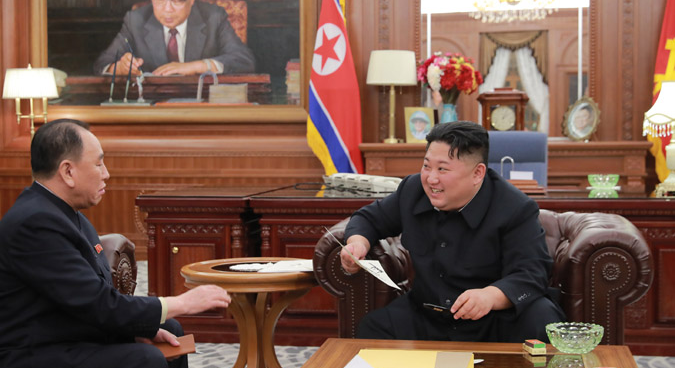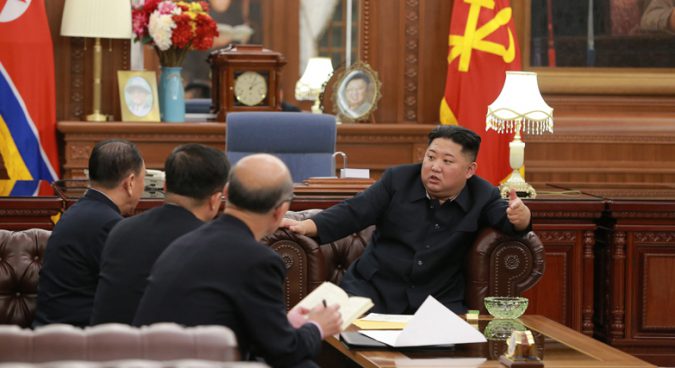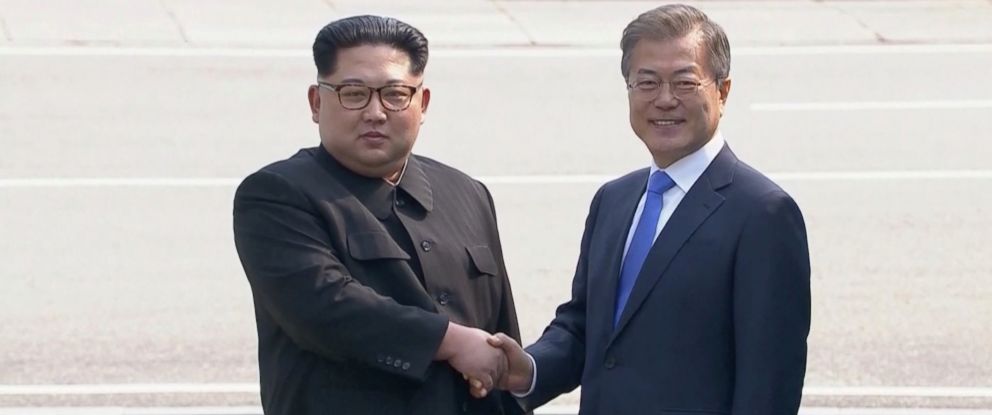
Good morning, delegates!
WHAT TO WATCH FOR TODAY
Friday is for monetary policy. At 11:30am in the Congress Hall, a panel on the global economy features the heads of the IMF, World Bank, and central banks of Japan and South Africa.

A global data deal that cuts out the world’s most populous country. On the sidelines of the forum, nearly 70 countries are expected to unveil an agreement to revive long-stalled WTO negotiations on the trade-related aspects of e-commerce. China will reportedly not be among them, another sign of the digital cold war brewing with the West, which is pushing for a deal to govern international data flows.

Crypto never sleeps. It’s only day two of the three-day Blockchain Economic Forum, run by crypto exchange Latoken at the Arabella Hotel Waldhuus. At 2:30pm, Nouriel “Dr. Doom” Roubini will discuss central bank digital currencies, probably not very favorably. If you’re still around on Saturday night—just can’t get enough Davos, eh?—there is a closing reception at the Hard Rock Hotel.

Clean-living Davos. The best thing you can do for your health at this point is probably just sleep in. If that’s not your thing, there’s the morning meditation at 8:15am in the Congress Centre or a half-day session up the Rinerhorn mountain (vans leave from 8:30am at the Shuttle Hub) to “discover what science-based activities can sharpen one’s sense of purpose and meaning, essential pillars to cultivating happiness.”

Party planner. Really? Still? The official program ends with a farewell lunch at 1pm up the Schatzalp. After that, a smattering of generally low-key dinners—aside from the rowdy fondue feast put on by the WEF for the weary media hordes—take place around town. And there’s always the Piano Bar, but do you think that’s wise at this stage?
SPONSOR CONTENT BY ACCENTURE

WHO WON DAY THREE?

Greta Thunberg, the Swedish teenager and climate-change activist who called the world to attention at COP24, brought her stark message to Davos, and more specifically the dome where Salesforce hosted lunch. The guests heard a panel featuring Jane Goodall, Bono, and Paris accords convener Christiana Figueres. But it was Thunberg who got the last word. She called companies and governments—that is, Davos delegates—to account for not doing more to stop our unfolding environmental catastrophe.
“We are facing [an] existential crisis, the biggest crisis humanity has ever faced,” the 16-year-old said. “If everyone is guilty, then no one is to blame, and someone is to blame… I think many of you here today belong to that group of people.” A hush came over the room.
Lunch attendee Deb Dugan, CEO of the Bono co-founded (RED) AIDS organization, called Thunberg “perhaps the most enlightened and wise person in the room. She moved me to tears because all I could think was, ‘What have we done?’”
MORE HIGHLIGHTS FROM YESTERDAY

Red alert. Citing “the mortal danger facing open societies from the instruments of control that machine learning and artificial intelligence can put in the hands of repressive regimes,” George Soros focused his annual dinner speech on fears about Xi Jinping’s China. As he delivered the speech, his press office sent reporters two transcripts—one in English and one in Chinese.
A lesson from space. Earthly politics seem to be chronically in crisis but there’s one place international cooperation has prevailed for decades: space. Sarah Al Amiri, the UAE’s science minister, said space is a testing ground for a better way of doing politics, in a panel moderated by Quartz’s Kevin Delaney. That said, the legal system that spells what countries can and cannot do in space is ambiguous.

Profiles encouraged. LinkedIn’s Jia Hyun had a clever (and marketing-savvy) way to introduce the panelists at an FQ Lounge session on corporate activism, asking them: What’s one thing about you that’s not on your LinkedIn profile? Among the things we learned: Suzanne Kounkel, Deloitte Consulting’s US chief marketing officer, played on the boys’ basketball team in fifth grade; Jacquelline Fuller, head of Google.org, spent three years as a stay-at-home mom; and Cindy Robbins, Salesforce’s president and chief people officer, is an introvert. (“This must be a tough week for you,” Fuller noted.)
It’s alright to cry. Bloomberg chairman Peter Grauer and former Unilever CEO Paul Polman both choked up during a panel on companies’ disability inclusion policies, as they told touching anecdotes about personal experiences, with the latter exec’s story moving Accenture North America CEO Julie Sweet to tears, too. The session, which is very much worth watching, was moderated by Caroline Casey, the legally blind founder of the advocacy group Binc. In the moment, it felt like a turning point in how disability gets discussed by global business leaders in Davos and beyond.
Brexit laid bare. As the chances of a disorderly Brexit rise, the chat about the UK’s divorce from the EU generated both bemusement and horror among delegates. At a lunch, UK chancellor Philip Hammond said he was against a second Brexit referendum because it would break trust in the political system, which is not exactly a paragon of probity these days. Meanwhile, Bank of England governor Mark Carney said companies weren’t prepared for a no-deal Brexit, which bookies give a 15% chance of happening.
Every little thing he does is magic. Sting played a soulful set at the Salesforce party with an audience that included Uber’s Dara Khosrowshahi, Google’s Ruth Porat, Marc Benioff, and will.i.am. “Economics doesn’t work without nature. Economics doesn’t work without community,” Sting said at the end. He then played, “Fragile.”
CHART INTERLUDE
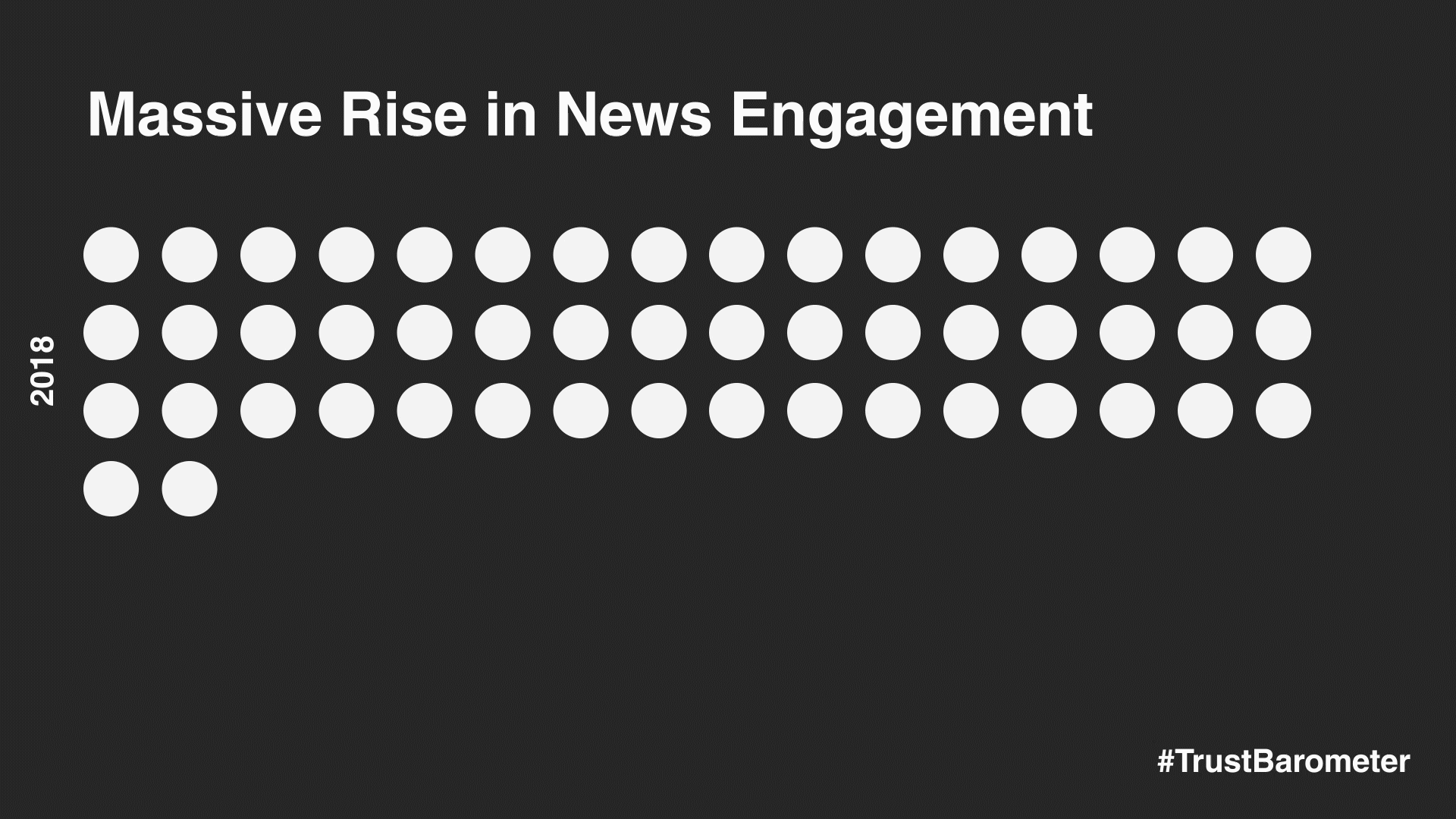
Journalists are only the second-least trusted people by the public, according to Edelman’s big survey released during the forum every year. Could be worse!

SEEN AND HEARD, BUMPER LAST-DAY-OF-DAVOS EDITION

“There are no experts for the future. Only experts for yesterday.”—Jack Ma, Alibaba co-founder
This is the font of the global elite? We did a double-take when spying a delegate in the Congress Centre typing a memo in Comic Sans.
“We might be inhaling our own exhaust here…”—preamble by a self-aware exec who nonetheless went ahead and made the point anyway

The cuddliest-delegate-of-the-week award goes to Ikkoy, the pint-sized Pomeranian that Gerardo from Paybook totes around in a backpack to events around the world, including the World Economic Forum.
“Young people don’t care about privacy… until they get hacked.”—European bank exec
“Would you name your kid Maxima? What kind of name is that?”—someone in the Congress Hall isn’t impressed by the Queen of the Netherlands
Sketches of crypto, a one-act playThe scene: Dudes mulling around one of the many blockchain lounges along the Promenade
Bro 1: So you used to be in crypto mining?
Bro 2: Yeah.
Bro 1: Ouch.
Bro 2: Yeah.
Bro 1: So you used to be in crypto mining?
Bro 2: Yeah.
Bro 1: Ouch.
Bro 2: Yeah.
“Climate change is the defining issue of our time. We are losing the race.”—António Guterres, UN secretary general
NEWS FROM AROUND THE WORLD

Two bills to reopen the US government died in the Senate. A Republican measure to allocate $5.7 billion for Donald Trump’s proposed border wall and a Democrat measure to re-open the government without wall funding both failed to reach the 60-vote threshold needed to pass. About 800,000 federal workers are not being paid as a result of the shutdown.
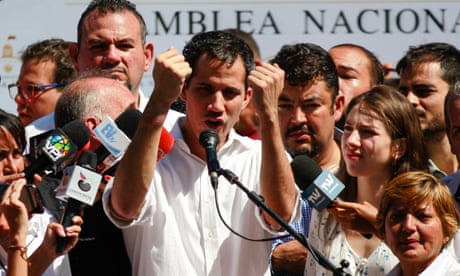
Venezuela’s opposition challenger spoke. Juan Guaidó hasn’t been seen in public since he declared himself interim president of the country on Wednesday, but in an interview with Spanish-language broadcaster Univision, the head of the national assembly—whose location was kept secret—said he would be willing to grant amnesty to president Nicolás Maduro if he helped restore democracy.

George Soros launched a blistering attack against China at Davos. Speaking at his annual dinner during the World Economic Forum, the philanthropist said he wanted to “call attention to the mortal danger facing open societies from the instruments of control that machine learning and artificial intelligence can put in the hands of repressive regimes,” referring specifically to China’s social credit system.
MATTERS OF DEBATE

America needs a wealth tax. Presidential hopefuls are campaigning on the idea of making millionaires and billionaires pay their fair share. Sen. Elizabeth Warren, D-Mass., is planning to propose a “wealth tax” on some of the richest Americans, an economist who advises her told CNBC on Thursday.
The new tax from Warren, who recently announced her bid to challenge President Donald Trump in 2020, would only apply to Americans with more than $50 million in assets. The Washington Post first reported the development.
“We helped her with the numbers,” economist Emmanuel Saez told CNBC. He said he believed the proposal would be officially announced on Friday.
He said his understanding was that the Warren team had already spoken with The Washington Post at the time he told them the details of the report.”The announcement will be made tomorrow I think, and I was confused because when I talked to the person I thought that Warren’s team had already talked to the press,” he said. “I shouldn’t be talking, you know.”
The wealth tax is projected to apply to less than 0.1 percent of U.S. households, and would raise $2.75 trillion over 10 years, Saez said. Warren’s proposal comes alongside other Democratic lawmakers’ plans to raise taxes on the wealthiest Americans to pay for ambitious policy goals, including a “green new deal.”
The development has not gone unnoticed by affluent investors and executives, many of whom are meeting this week at the World Economic Forum in Davos, Switzerland.
The Post reported that Warren has been advised by two left-leaning economists on a deal that would levy a 2 percent wealth tax on Americans with $50 million-plus in assets. For Americans with assets above $1 billion, that tax rate would increase to 3 percent.

Earth’s dysfunctional politics shouldn’t extend to space. Davos attendees worry that international conflicts could become a major hurdle in orbit and beyond.At a panel (Jan. 24) chaired by Quartz editor-in-chief Kevin Delaney on “entering a new space age,” industry players argued that space exploration could be both a cooperative endeavor and a testing ground for a better way of doing politics.
This year’s gathering of international power-brokers has been dominated by concerns over a US-China trade war, political instability in major countries, the increasing pace of climate change, and a slowdown in economic growth. But today’s speakers argued that these earthly problems need not translate to the field of space exploration where, according to Sarah Al Amiri, minister of State for Advanced Sciences of the United Arab Emirates, conflict and isolationist behaviors are “not to the benefit of any nation.” That, Al Amiri explained, is because the cost of space research and innovation “cannot be sustained by any one entity,” and “the risk of not collaborating far outweighs any nationalistic approach.”
Al Amiri’s fellow panelists agreed that working together in space is in the interest of every actor involved, bringing up the historical example of the US and Soviet Union working together on the International Space Station, even as the Cold War raged below them on Earth.

Journalists should never tweet. Twitter is the world’s most damaging social network for reporters and editors alike.“Never Tweet” is an ironic meme on Twitter, a thing people in media say to acknowledge how futile it is to consider ever leaving this place where all news happens first. I want to suggest another meaning: “Never Tweet” should be an aspiration, a necessary step toward improving the relationship between the media and the digital world.
SURPRISING DISCOVERIES
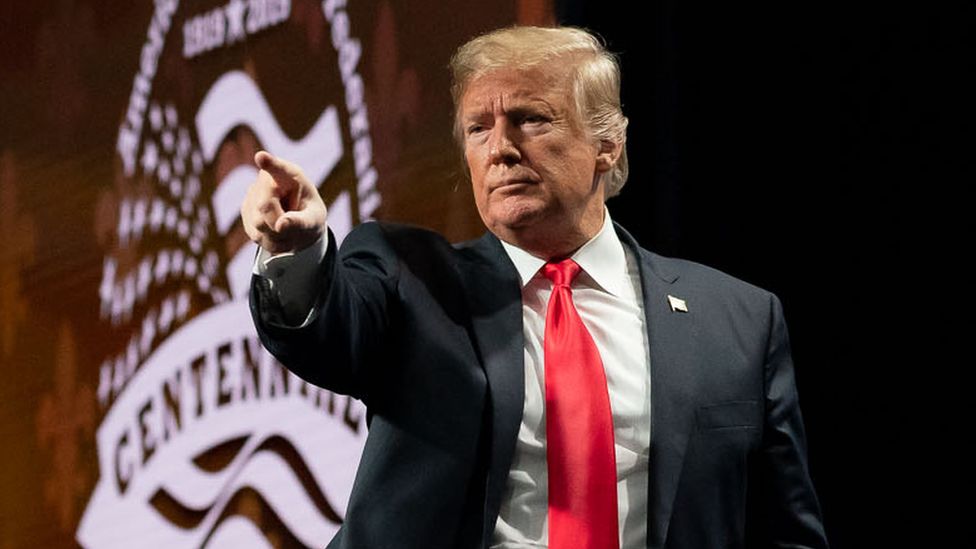
The White House is photoshopping Donald Trump. Not-so-subtle alterations are slimming the president’s bulk and lengthening his fingers.The original version, which was posted on the White House’s Flickr page, appears to have a few key differences.
The ruffles in the president’s suit have been smoothed out near his shoulder and he looks trimmer, specifically around his neck.
His hair also seems tidier, although this could be a result of the image being superimposed on a different background, and his face has been brightened.
One of the more unusual differences is that Mr Trump’s fingers seem to have been made longer.

The size of his hands has been the subject of ridicule from political opponents and comedians in the past.
- What is the big deal about Trump’s hands?
- Wired explains Trump ‘Tiny Hands’ misprint
- Donald Trump wrote own health letter, says physician
“I do not understand why his hands are the size of someone who is 5ft 2ins,” rival Republican candidate Marco Rubio quipped in 2016.
Mr Trump soon responded, asking a studio audience during that year’s election campaign: “Do these look like small hands?”
Another image of Mr Trump in which he can be seen waving from the presidential plane, Air Force One, also appears to have been edited.
The original version can be seen here and was taken by White House photographer Tia Dufour.
Once again, the president looks slimmer around the neck and his stomach looks flatter than in the version that was posted to Facebook. Mr Trump and the White House have not commented on the alleged edits.
But this is not the first time people have criticised images of the Trump family for their apparent enhancements. In 2017, critics said that the first official portrait for First Lady Melania Trump had been “heavily airbrushed” before it was released by the White House.

A board game based on the Novichok nerve-agent attack is on sale in Russia. The makers of “Our Guys in Salisbury” said the game was a response to biased coverage of Russia in Western media.
The game was developed in November by the Moscow-based toymaker Igroland. The first images of it seen online were thought to be fake. “I can’t understand, is this photoshop or not?” wrote one blogger from Yekaterinburg, Dmitry Kolezev, who published an early photograph of the game in November.
Another image of the box, posted online by a Reuters reporter this week, prompted new speculation over whether the game was real. But in an interview on Tuesday, two of the creators of Our Guys in Salisbury confirmed they had 5,000 copies of the game printed last year and were selling them online to retailers.

Mikhail Bober said he came up with the idea for the game in part because of the scale of coverage of the Skripal poisoning by the foreign press, and western accusations that Russia was responsible.
“In some way, this was an idea of our answer to western media: enough already,” said Bober, who joined Igroland last year. “To us, it’s not funny any more. It’s sad. This needs to stop.”
Asked whether he thought a board game about the Salisbury attack, in which one person died and four more were taken to hospital, would offend Britons, he said: “We didn’t want to offend anyone. On the contrary, we wanted to support our countrymen who might be offended by this situation … a lot of things are said and a lot of it without any proof.”
An October survey by the independent pollsters Levada Centre showed just 3% of Russian respondents firmly believed the Skripals, and later Dawn Sturgess, who died, and Charlie Rowley, were poisoned by Russian officers.
The game also reflects how the response to the Salisbury poisonings in particular have been treated as something of a joke in Russia. The television station RT sent out chocolate Salisbury Cathedrals as end-of-year gifts to other news agencies this year.

A German man is suing over women-only parking spots. The Bavarian town of Eichstätt designated well-lit and accessible spaces for women after a sexual assault.
A court in Munich on Wednesday said an agreement had been reached between the city of Eichstätt and Dominik B. Bayer, a motorist who argued he felt discriminated against when he visited Eichstätt and saw parking spaces reserved for women.
The Bavarian town installed the female-only spots in a central public carpark after a woman was attacked and sexually assaulted nearby in 2016. The designated spaces are well-lit and located close to entrances and exits.
In a statement, the Munich Administrative Court said that the city agreed to remove the signs by the end of February and to install new ones that make it clear that the city “requests” or “recommends” that the parking spaces should be reserved for women.
Judge: Women’s only parking spaces not permissible
The plaintiff, who is from the western Rhineland region, had argued that the special parking spots violate Germany’s General Act on Equal Treatment. The law prohibits discrimination on the basis of gender, but does make exceptions for the protection of privacy or personal safety.
Bayer said the special spaces discriminate not only against men, but also against women, because they suggest women can’t run very far and need protection.
In their statement, the court noted that since another agreement had been reached, they did not need to hand down a verdict on whether or not women’s parking spots should be allowed in public carparks, or whether they are a form of discrimination.
However, the presiding judge in the case emphasized that he believes that female-only parking spots are not permissible, “even though the protection of women is an understandable reason for unequal treatment.”
The judge said that traffic signs used in public spaces are dictated by Germany’s road traffic regulations (StVO), which does not yet include a women’s only parking space sign.
He added that women-only parking spaces in private lots, for example at supermarkets or businesses, are permissible since they are governed by private law.
Q-MHI DAVOS 



